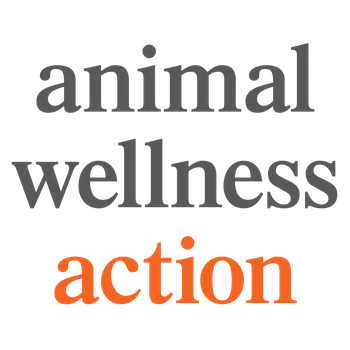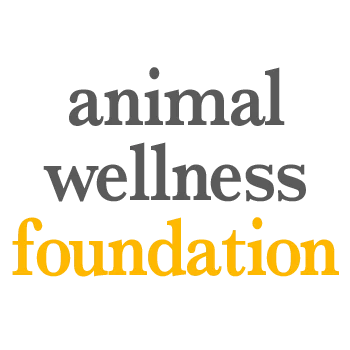Press Release



Contact:
Wayne Pacelle • 202-420-0446
wpacelle@centerforahumaneeconomy.org
Groups Call on Agriculture Secretary Tom Vilsack to Close National Forests Surrounding Yellowstone National Park to Curb Catastrophic Killing of Yellowstone’s Wolves
BOISE – A set of conservation and animal protection groups, including Animal Wellness Action, the ZooMontana, and the Western Watershed Project, today called on Agriculture Secretary Tom Vilsack to close down wolf hunting and trapping in the Caribou-Targhee, Bridger-Teton, Custer Gallatin, and Shoshone national forests surrounding Yellowstone National Park in Idaho, Montana, and Wyoming to protect wolves from an unprecedented assault by the states.
Trappers and hunters, who are allowed to bait wolves from the park, have killed at least 20 resident Yellowstone wolves, 15 of them in Montana during this hunting season. Fewer than 100 wolves survive in the 2.2 million-acre park, setting back the recovery of wolves, jeopardizing the wolf-watching industry that is an economic engine for gateway communities to the park, and disrupting the ecological balance that wolves had restored. These are the most famous and most watched wolves in the world, yet they are the targets of an unprecedented assault by private hunters in Montana and Idaho.
“The U.S. Forest Service (USFS) must not be a passive actor when it comes to wildlife management when native wildlife species are threatened by external threats,” wrote the leaders of 25 conservation and animal protection organizations. “Indeed, under 36 CFR § 261.50 the agency has the legal authority to close or restrict uses of national forests, while § 261.53 allows for ‘special closures’ to protect ‘[t]hreatened, endangered, rare, unique, or vanishing species of plants, animals, birds or fish.”
With Idaho allowing year-round wolf hunting and trapping, and Montana’s season set to extend through mid-March, we could see a substantial increase in the total kill of wolves living primarily in Yellowstone National Park. The two states allow baiting and bounty programs and Idaho is aiming to kill more than 1,000 wolves in the state.
“State access to national forests comes with responsibilities, and when those responsibilities go unfilled and states let loose extreme acts of violence against rare species, then the federal government, including the U.S. Forest Service, has a duty to intervene,” notes Wayne Pacelle, president of Animal Wellness Action. “State hunting and trapping in national forests is a privilege, not a right.”
Montana began its assault on wildlife by passing new management laws targeting the concentration of wolves ranging through Yellowstone and Glacier National Parks. The wolf-killing allowances include permitting the use of neck snares to indiscriminately strangle any wildlife on all public lands except in lynx protection zones, hunting at night with artificial lights, and lengthening the trapping season affecting late term pregnant wolves — a particularly destructive set of practices around Yellowstone whose packs are less wary of people due to the decades long scientific and public observation of the wolves. Montana and Idaho hunters and trappers are even allowed to bait these wolves into roaming outside the protection of Yellowstone and into hunting areas where prior quotas have been eliminated.
Signers of the letter to Agriculture Secretary Tom Vilsack include the Center for a Humane Economy, Predator Defense, ZooMontana, WildEarth Guardians, the Western Watershed Project, Footloose Montana, Animal Wellness Foundation, Trap Free Montana, Wildlife For All, Wyoming Untrapped, Wyoming Wildlife Advocates, Sawtooth Science Institute, Wolves of the Rockies, Great Old Broads for Wilderness – Boise, Northwest Montana, Tucson, Teton Valley, Wood River Valley, Palouse, Sonoran, Middle Gila, South Sound, North Olympic Peninsula, Cascade, and Willamette Valley, SPCA International, Michelson Center for Public Policy, Living With Wolves, Animal Wellness Action, Gallatin Wildlife Association, EcoFlight, Trap Free Montana Public Lands, Timberline TREE, The Plan B Foundation, Gallatin Yellowstone Wilderness Alliance, Partners in Animal Protection and Conservation
The Center for a Humane Economy (“the Center”) is a non-profit organization that focuses on influencing the conduct of corporations to forge a humane economic order. The first organization of its kind in the animal protection movement, the Center encourages businesses to honor their social responsibilities in a culture where consumers, investors, and other key stakeholders abhor cruelty and the degradation of the environment and embrace innovation as a means of eliminating both.
Animal Wellness Action (Action) is a Washington, D.C.-based 501(c)(4) organization with a mission of helping animals by promoting legal standards forbidding cruelty. We champion causes that alleviate the suffering of companion animals, farm animals, and wildlife. We advocate for policies to stop dogfighting and cockfighting and other forms of malicious cruelty and to confront factory farming and other systemic forms of animal exploitation. To prevent cruelty, we promote enacting good public policies and we work to enforce those policies. To enact good laws, we must elect good lawmakers, and that’s why we remind voters which candidates care about our issues and which ones don’t. We believe helping animals helps us all.
The Animal Wellness Foundation (Foundation) is a Los Angeles-based private charitable organization with a mission of helping animals by making veterinary care available to everyone with a pet, regardless of economic ability. We organize rescue efforts and medical services for dogs and cats in need and help homeless pets find a loving caregiver. We are advocates for getting veterinarians to the front lines of the animal welfare movement; promoting responsible pet ownership; and vaccinating animals against infectious diseases such as distemper. We also support policies that prevent animal cruelty and that alleviate suffering. We believe helping animals helps us all.